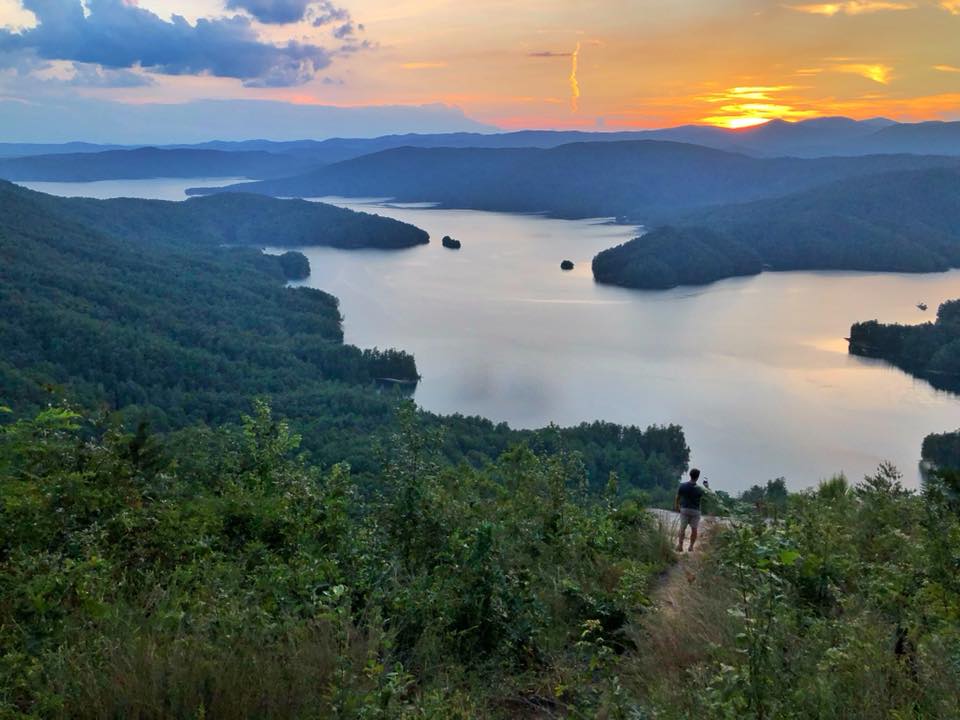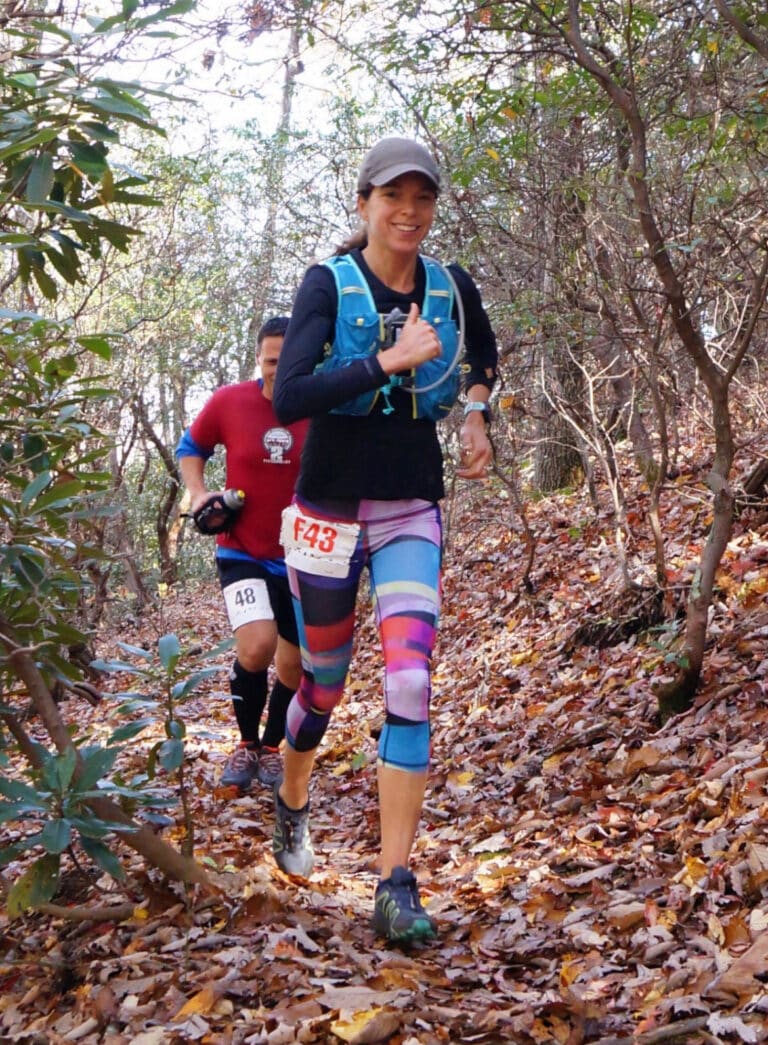Photo: Lake Jocassee as seen from the Jocassee Gorges Wildlife Management Area. Photo by Travis Hall.
After Local Opposition, State Puts Brakes on South Carolina Bike Race Planned By Former Pro Cyclist George Hincapie.
“Any distance you pick, this is gonna be one heck of a ride.” So said former pro cyclist George Hincapie in a promotional video announcing the Gran Fondo Hincapie Gravel—a multi-route race that was set to take place on March 6, 2021, in the scenic Jocassee Gorges Wildlife Management Area in Hincapie’s home state of South Carolina.
But not long after the race was announced and touted as an experience for cyclists of all levels, the South Carolina Department of Natural Resources (SCDNR) denied a permit request from Hincapie Cycling for the proposed event, citing potential negative environmental impact to the biologically diverse Jocassee Gorges ecosystem. The late-September permit denial was issued after a group of roughly 70 concerned citizens gathered at a community meeting at Hagood Mill in Pickens County to voice opposition to the race before a panel of SCDNR land managers and statehouse politicians.
Months before the public meeting took place, Hincapie Cycling—based in Greenville, S.C., and owned and operated by the well-known cyclist and his brother Rich Hincapie—had already begun promoting the race. The company hosts multiple races, including the Gran Fondo Hincapie Greenville in the fall and a similar event in Chattanooga, Tenn., in the spring.
But local opposition to the Jocassee ride arose when Buzz Williams, founder and board member of a grassroots environmental activism group called the Chattooga Conservancy, began informing area residents that the event was in the works.
During the meeting, Williams asked if there had been any environmental impact studies done showing how the event might impact the Jocassee Gorges; the area is replete with sensitive habitat like that found in the Cane Creek Botanical Area, through which Hincapie had planned to route the race. “I was told by Mark Hall that he had in fact done a study that had prompted him to advise (SC)DNR against issuing a permit,” Williams said.
Hall is a wildlife biologist and the SCDNR land manager for the entire 40,000-plus acre Jocassee Gorges complex. He says that he did indeed advise against the race when he saw the initial proposal back in June.
“I elevated the initial proposal and determined that the use was inconsistent with our management plans for the property,” Hall said. “I cited public safety issues, natural resource impact issues, and the fact this type of commercial event is not deemed a natural resource dependent recreational use of the area.”
Hall went on to say that both he and the SCDNR “support, endorse, and are committed to a variety of uses in the Jocassee Gorges” that include recreational pursuits from hunting and bird watching to hiking and cycling. “We just don’t want to see the type of volume that was proposed for this event,” he said.
Volume, both of participants and potential spectators, seemed a key point of concern for both Hall and Williams. Hall’s concern centered around the possibility that cyclists would be released en masse upon the Jocassee Gorges landscape; in addition to large crowds of participants, Williams believed that the race would have introduced an unsustainable influx of spectators into the biologically sensitive area: “They were going to bring in a thousand spectators or more to watch this thing,” he said.
While they do not plan to fight the decision going forward, the Hincapie organization does appear to stand by its decision to organize the race in the first place.
“The opposition came from a collection of locals who were taking a ‘not in my backyard approach’ to the event,” said Hincapie event coordinator Jamie Godfrey. According to him, the locals—residents of the nearby Eastatoes Valley—opposed the event based on the number of visitors it would bring into the valley.
Godfrey went on to deny claims voiced by Williams and the Chattooga Conservancy that the event would have brought more than 1,000 spectators to the area, calling it a “fabrication.”
“We didn’t want everyone’s family out there on the course,” he said, noting any spectators would have congregated at Arabella Farms, a private event venue in the nearby town of Sunset.
For his part, Godfrey does not appear to believe that the race would have posed any significant environmental or ecological threats to the Jocassee Gorges, and he points out that the course was proposed for gravel roads that regularly host cars and ATVs.
“We were given tentative approval from SCDNR months before the meeting,” he said. “We had approval through email with the caveat that there would be a public question and answer session. We were told we had permission.” While he acknowledged the local opposition that sprung up around the proposed race, Godfrey says that “Pickens County Tourism was on board.
“Our goal is to be a part of this community,” he added. “And we respect the community’s wishes. That said, we are still in contact with (SC)DNR, and we are keeping our options open for the future.”








